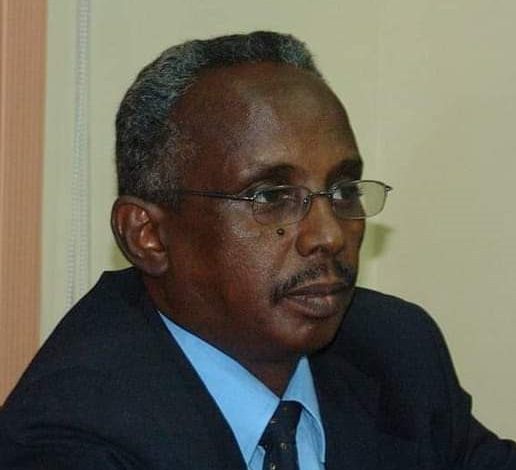Sudanese Scene Acrobats!!

By: Osman Mirghani
The “Nairobi Declaration,” which was signed by Dr. Abdullah Hamdouk, the former Prime Minister and head of the Civil Forces Coordination (Taqadum), last Saturday with the heads of two of the armed movements, Abdul Wahid Mohamed Nour, head of the Sudan Liberation Movement, and Abdul Aziz Al-Hilu, head of the Sudan People’s Liberation Movement (SPLM) – N, sparked controversy and many remarks. I was surprised, like many others, when it was announced that the agreement was tripartite, while the document that spread contained the signatures of Hamdouk and Abdul Wahid only. People wondered why the declaratiom circulating appeared signed by only two names, while Al-Hilu was present and appeared in the pictures with the other two parties?
The mystery did not last long, as it soon became clear that Hamdouk signed the same declaration twice, wearing two different hats: once with Abdul Wahid, wearing a hat as the former Prime Minister, and once with Al-Hilu, wearing a hat as the head of the “Taqadum” coordination. Why was there this duality?
The response came in subsequent statements by Kamal Abdul Aziz, leader of the Abdul Wahid movement, who explained in a statement to Al-Muhaqqiq that the movement did not sign with Hamdlouk in his capacity as head of the “Taqadum” coordination because it refuses to agree with entities calling for alignment, as he put it. He went on to say: “We do not want to get involved in these alignments that caused the problems that led the country to this war.” He explained this by saying that the forces of the Declaration of Freedom and Change (FFC) are themselves “Taqadum .” “We previously refused to align with (FFC), and we now reject it with (Taqadum). What is strange is that when Abdul Wahid Mohamed Nour met Hamdouk for the first time in Paris in September, (September 2019) By arrangement of the French presidency, he refused at the time to meet him in his capacity as prime minister, and said at the time that he agreed to meet him “not as a head of government, but as an individual and a political figure in the country.”
Today, Abdul Wahid returns to sign the Nairobi Declaration with Hamdouk in the capacity of the former prime minister, which he previously refused to recognize. These are the acrobats of the current political theater!
The Declaration, in its other version, which Hamdouk signed in his capacity as head of the “Taqadum” coordination, also raises problems that suggest that the man acted alone, as evidenced by the fact that the National Umma Party, which is a major party in the components of “Taqadum,” expressed its objection to basic paragraphs contained in it. The party announced in a statement issued this week that the declaration included controversial issues to be discussed at the National Constitutional Conference, especially “the nature of the state, the issue of religion and the state, identity and the system of government.”
Among these controversial issues is what was stated in paragraph four (d), which stipulates “the establishment of a secular state” in Sudan. This is a sensitive matter that has raised and continues to raise many disagreements and controversy, and cannot in any way be decided by the parties to the Nairobi Declaration on behalf of the Sudanese people and in isolation from other political, civil and societal parties and forces.
The declaration delved into issues of the state’s identity, nature, and form of governance in other paragraphs as well, talking about voluntary unity, federal rule, and “ensuring the separation of cultural, ethnic, religious, and regional identities from the state.” The calamity is that the three parties to the declaration decided that “if these principles are not included in the permanent constitution, the Sudanese peoples have the right to exercise the right to self-determination.” This is undoubtedly a bombastic formulation that attempts to dictate to the people to accept these decisions and include them in any future constitution. Otherwise, the alternative is partition and the right to self-determination for all “Sudanese peoples”! Even for the round table in which these issues are supposed to be discussed, the Nairobi Declaration made it limited to national forces that believe in the principles contained therein, which means excluding political, civil and societal forces that may not agree with its basic points.
The declaration also included another dangerous point when it stipulated in Paragraph 4 (e) “the establishment of a new military and security system,” which is understood as a call to dismantle the armed forces and form a new army, which is considered a violation of all previous understandings between the civilian and military parties, whether in the transitional period or beyond, including the Addis Ababa Declaration, which Hamdouk himself signed with the Commander of the Rapid Support Forces, Mohamed Hamdan Dagalo.
There are other controversial points that there is not enough space to mention here, but the Declaratiom form will not be a helpful factor in bringing the ranks together, rather it will plant more seeds of disagreement in the already inflamed arena.



